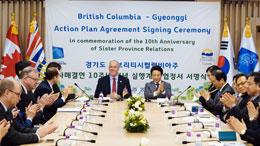Canada needs more exposure to Asian diversity and dynamics

By Ka Po Kong
& Yushu Zhu
Asia Pacific Foundation of Canada
Canada’s millennials (born between 1983 and 1999; aged 18 to 34 as of 2017) are the generation that grew up in an era of a rising Asia and who will form the largest block of the electorate in the 2019 Canadian federal election. Their views on Asia will inform the trajectory of Canada’s future engagement with this region.
The Asia Pacific Foundation of Canada’s 2017 National Opinion Poll, Canadian Millennial Views on Asia, highlighted that millennials – often stereotyped as being disengaged or apathetic to world affairs – have more open and diverse views about Asia than their elders. But what are the factors that make millennials and non-millennials’ (Canadians aged 35 or above) perceptions distinct?
As the first generation coming of age in the era of the internet and globalization, millennials’ perceptions of Asia have been shaped by a myriad of sources of information. Our poll data reveal millennials’ knowledge about Asia tends to come from mass media (including traditional media, websites, and social media), social networks and first-hand experiences (e.g., travel and work experiences). In contrast, non-millennials primarily rely on mass media, especially traditional media, to learn about Asia. Our analysis also suggests that, compared with non-millennials, millennials are less susceptible to the negative influence of mass media, and have more first-hand experiences in Asia and more frequent interactions with people from Asia – which allows millennials to form a more holistic, experience-based view of Asia.
The poll suggests that millennials’ perception of Asia is less likely to be influenced negatively by mass media, in comparison to non-millennials. In the poll, we asked people to recall information about Asia that they read/heard from the mass media in the past three months. Millennials are more likely to recall positive messages, while the majority of non-millennials recall negative messages. Moreover, non-millennials’ feelings toward Asia seem to be more responsive to what they see in the mass media – those who recall neutral or positive information about Asia give a favourability rating of Asia 11% higher than those who recall negative messages. In contrast, the gap among millennials is marginal. First-hand experiences and socialization, as discussed below, may help explain the different mass media influences for the two groups.
First-hand experiences, such as travel to Asia, form another critical source of knowledge about Asia for millennials. The poll data shows that 32% of millennials have visited Asia at least once, as compared to 26% for non-millennials. Further, travel experiences are positively associated with a positive feeling toward Asia – 66% of those who travelled to Asia feel favourable as compared to 47% of those who had no travel experiences to Asia. This is true for both millennials and non-millennials.
Socialization with people from Asia also contributes to the more positive feelings toward Asia among millennials. Among millennials, 68% reported that they have frequent or occasional interactions with people from Asia, in contrast to 57% of non-millennials. Social interactions with hosts from different cultures can foster intercultural understanding and help establish one’s perception of a place. Our findings show that the more frequently someone interacts with people from Asia, the more likely it is that that person will appreciate the region. This is particularly true for millennials who interact with Asians more often than non-millennials – 60% of millennials who have frequent or occasional interaction with people from Asia feel favourable toward Asia, compared with 52% of those who seldom or never socialize with Asians.
A myriad of factors has shaped Canadian millennials’ views on Asia. Compared with older generations, they grew up while Asia was rising, and in a digitized and globalized world where various sources of information could be easily accessed. They are exposed to the diversity and dynamics of Asian cultures and societies through grounded experiences and social networking. They are also less likely to be influenced negatively by the mass media. As a result, millennials tend to see Asia differently from their elders.
Our findings highlight that exposure to and engagement with Asia in different ways are important in building up Canadian millennials’ favourable sentiment toward Asia. It’s such positivity about Asia that drives young people to learn more about Asia and improve their Asia-related skill sets. The poll reveals a strong desire among millennials to learn more about this region. If Canada is going to make our future generations Asia-ready, it will bode well to provide more opportunities for cultural exchanges and mutual conversations, and for young Canadians to pursue grounded experiences through work, study, or travel.
Ka Po Kong is a former junior research fellow with the Asia Pacific Foundation of Canada. She is currently a student of Sociology at the University of B.C. Yushu Zhu is a Program Manager, Surveys and Polling, at the Asia Pacific Foundation of Canada, and a Research Associate at the University of British Columbia.






